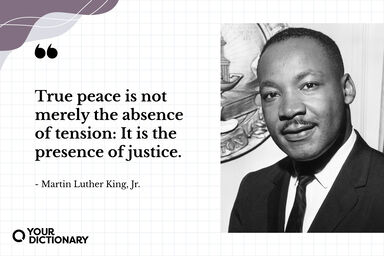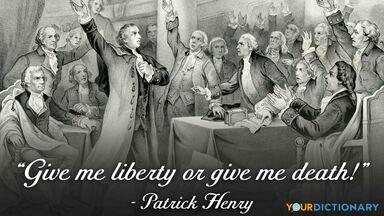Freedom Of Speech Definition
noun
The right to express any opinion in public without censorship or restraint by the government, protected in the United States as a right under the First Amendment to the US Constitution.
American Heritage
The right, guaranteed by the First Amendment to the United States Constitution, to communicate ideas and opinions without government intervention.
Webster's New World Law
Related Articles
Freedom Of Speech Is Also Mentioned In
Find Similar Words
Find similar words to freedom of speech using the buttons below.





